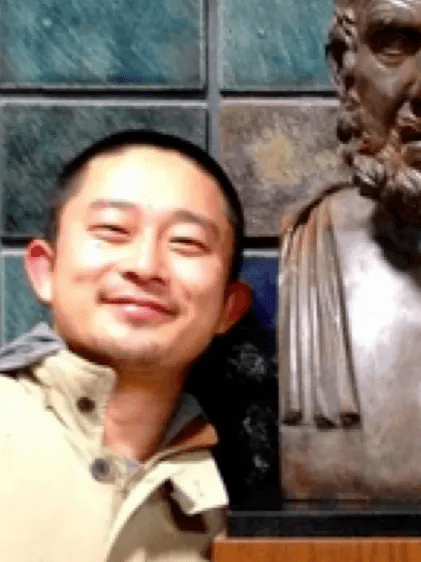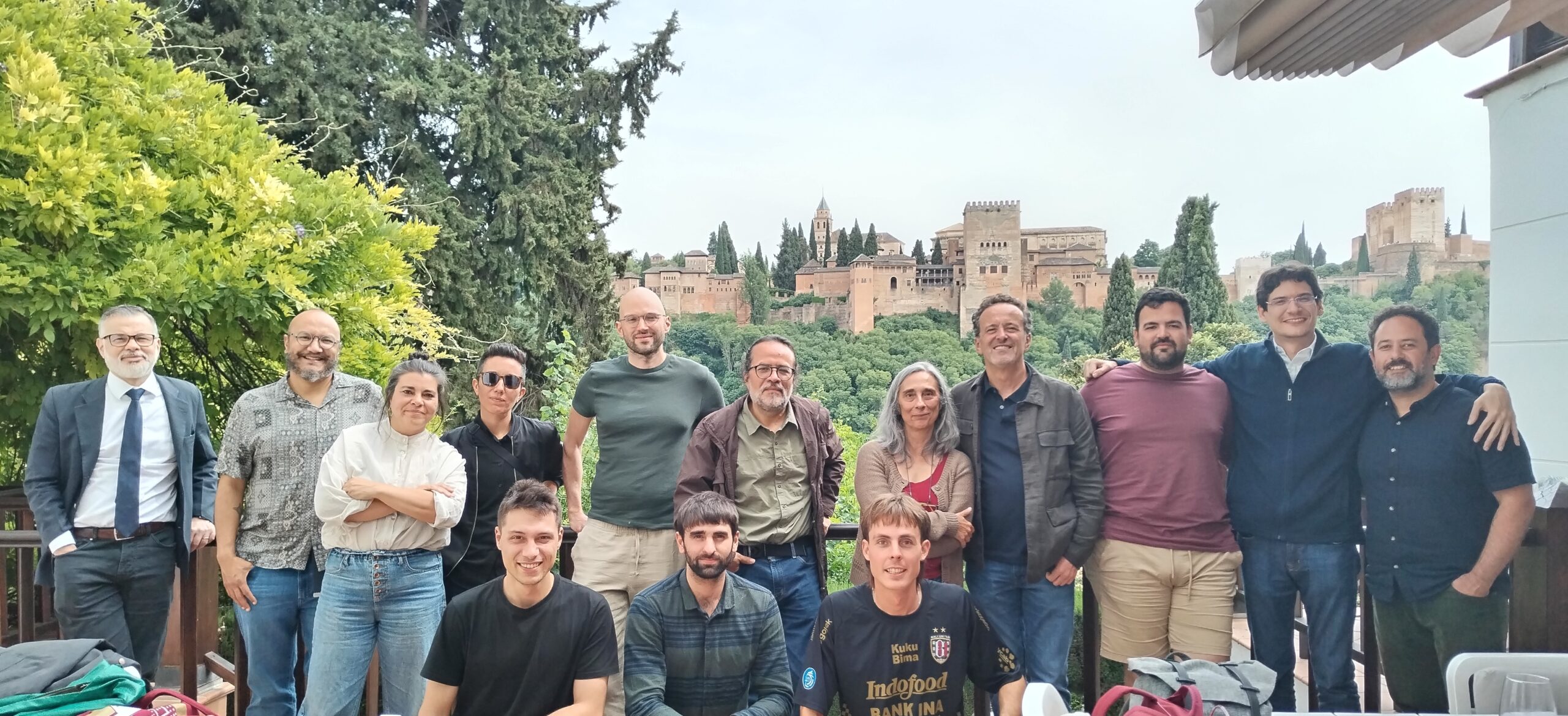
AUTAI PROJECT
ARTIFICIAL INTELLIGENCE AND HUMAN AUTONOMY
TOWARDS AN ETHICS FOR THE PROTECTION AND ENHANCEMENT OF AUTONOMY IN RECOMMENDER SYSTEMS, ROBOTICS AND VIRTUAL REALITY
RESEARCH PROJECT
2023 – 2026
Summary
The emergence of artificial intelligence (AI) is giving rise to very prolific debates in applied ethics and arousing great social interest. However, they suffer from conceptual ambiguity and a lack of systematic development of the issues involved. Thus, the studies contributed to these debates are often superficial and limited to either indicating that AI systems will lead to desirable or undesirable consequences, or to deriving ethical conclusions from the mere analysis of particular AI systems.
The AutAI research project aims to overcome these shortcomings through an in-depth study of autonomy, one of the central concepts of ethics in general, and AI ethics in particular. We believe that this study will make it possible to break the impasse to which the different theories about it have led. Thus, from an eclectic conception of autonomy that brings together the virtues of different theories, we will try to determine different criteria for identifying the possible risks and benefits of AI for autonomy. These criteria will be applied to the study of three AI technologies in particular: recommender systems, social robots and virtual reality.
As a result of this preliminary work, an attempt will be made to formulate a proposal for ethical principles that will serve as a basis for a design and use of such technologies that are respectful and facilitative of human autonomy. Finally, the technical, socio-political and educational aspects of implementing the normative proposal reached will be considered.
people
PRINCIPAL INVESTIGATORS

Francisco Lara

Blanca Rodríguez López
INVESTIGATION TEAM

Alberto Fernández

Miguel Moreno

Catia Faria

Marcos Alonso
WORK TEAM

Julian Savulescu

Jorge Enrique Linares

Aníbal M. Astobiza

Juan Ignacio Del Valle

Robert Gamboa

Mark Coeckelbergh

Marcelo de Araujo

Pablo García Barranquero

Joan Llorca Albareda

Pedro Fior

Jan Deckers

Murilo Vilaça

Jon Rueda

Tyra Díez

Koji Tachibana

Paloma García

Gonzalo Díaz Cobacho

Pablo Neira










events & results
PUBLICATIONS
Rueda, J., Ausin, T., Coeckelbergh, M., Del Valle, J.I., Lara, F., Liedo, B., Llorca, Mertens, H., Ranisch, Raposo, V.L., Stahl, B. Vilaça, M., & De Miguel, I. (2025). Why dignity is a troubling concept for AI ethics. Patterns, 6 (3), 101207
Llorca Albareda, J. (2024). Anthropological crisis or crisis in moral status: a philosophy of technology approach to the moral consideration of artificial intelligence. Philosophy and Technology.
Linares-Peralta, R. & Llorca-Albareda, J. (2024). Repensando la antropología digital: estructuralismo, mediación tecnológica e implicaciones epistémicas y morales. Enrahonar.
Moreno Muñoz, M. (2024). Gradualismo vs singularidad en la interpretación de riesgos asociados con la inteligencia artificial. Revista de la Sociedad de Lógica, Metodología y Filosofía de la Ciencia en España.
Llorca Albareda, J. (2023). El estatus moral de las entidades de inteligencia artificial. Disputatio.
Rodríguez, B. & Rueda, J. (2023). Artificial moral experts: asking for ethical advice to artificial intelligent assistants. AI & Ethics.
Neira Castro, P. (2024). De la biomejora moral a la IA para la mejora moral: asistentes morales artificiales en la era de los riesgos globales. Enrahonar.
Del Valle, J.I., Llorca Albareda, J. & Rueda, J. (2023). Ethics of Virtual Assistants. En Lara, F. & Deckers, J. (eds.) (2023). Ethics of Artificial Intelligence, Springer.
Del Valle, J.I. & Moreno, M. (2023). Ethics of Autonomous Weapon Systems. En Lara, F. & Deckers, J. (eds.) (2023). Ethics of Artificial Intelligence, Springer.
Llorca Albareda, J., Garcia P. & Lara, F. (2023). The Moral Status of AI Entities. En Lara, F. & Deckers, J. (eds.) (2023). Ethics of Artificial Intelligence, Springer.
Martínez-López, M.V., Díaz-Corbacho, G., Astoriza, A.M. & Rodríguez, B. (2023). Exploring the Ethics of Interacción with Care Robots. En Lara, F. & Deckers, J. (eds.) (2023). Ethics of Artificial Intelligence, Springer.
Lara, F. & Deckers, J. (eds.) (2023). Ethics of Artificial Intelligence, Springer.
Lara, F. & Rodríguez-López, B. (2023). Socratic nudges, virtual moral assistants and the problem of autonomy. AI & Society.
Del Valle, J.I. & Lara, F. (2023). AI-powered systems and the preservation of personal autonomy. AI & Society.
Llorca Albareda, J. (2024). Anthropological crisis or crisis in moral status: a philosophy of technology approach to the moral consideration of artificial intelligence. Philosophy and Technology.
Linares-Peralta, R. & Llorca-Albareda, J. (2024). Repensando la antropología digital: estructuralismo, mediación tecnológica e implicaciones epistémicas y morales. Enrahonar.
Moreno Muñoz, M. (2024). Gradualismo vs singularidad en la interpretación de riesgos asociados con la inteligencia artificial. Revista de la Sociedad de Lógica, Metodología y Filosofía de la Ciencia en España.
Llorca Albareda, J. (2023). El estatus moral de las entidades de inteligencia artificial. Disputatio.
Rodríguez, B. & Rueda, J. (2023). Artificial moral experts: asking for ethical advice to artificial intelligent assistants. AI & Ethics.
Neira Castro, P. (2024). De la biomejora moral a la IA para la mejora moral: asistentes morales artificiales en la era de los riesgos globales. Enrahonar.
Del Valle, J.I., Llorca Albareda, J. & Rueda, J. (2023). Ethics of Virtual Assistants. En Lara, F. & Deckers, J. (eds.) (2023). Ethics of Artificial Intelligence, Springer.
Del Valle, J.I. & Moreno, M. (2023). Ethics of Autonomous Weapon Systems. En Lara, F. & Deckers, J. (eds.) (2023). Ethics of Artificial Intelligence, Springer.
Llorca Albareda, J., Garcia P. & Lara, F. (2023). The Moral Status of AI Entities. En Lara, F. & Deckers, J. (eds.) (2023). Ethics of Artificial Intelligence, Springer.
Martínez-López, M.V., Díaz-Corbacho, G., Astoriza, A.M. & Rodríguez, B. (2023). Exploring the Ethics of Interacción with Care Robots. En Lara, F. & Deckers, J. (eds.) (2023). Ethics of Artificial Intelligence, Springer.
Lara, F. & Deckers, J. (eds.) (2023). Ethics of Artificial Intelligence, Springer.
Lara, F. & Rodríguez-López, B. (2023). Socratic nudges, virtual moral assistants and the problem of autonomy. AI & Society.
Del Valle, J.I. & Lara, F. (2023). AI-powered systems and the preservation of personal autonomy. AI & Society.
Rueda, J., Ausin, T., Coeckelbergh, M., Del Valle, J.I., Lara, F., Liedo, B., Llorca, Mertens, H., Ranisch, Raposo, V.L., Stahl, B. Vilaça, M., & De Miguel, I. (2025). Why dignity is a troubling concept for AI ethics. Patterns, 6 (3), 101207. |
Llorca Albareda, J. (2024). Anthropological crisis or crisis in moral status: a philosophy of technology approach to the moral consideration of artificial intelligence. Philosophy and Technology.
Linares-Peralta, R. & Llorca-Albareda, J. (2024). Repensando la antropología digital: estructuralismo, mediación tecnológica e implicaciones epistémicas y morales. Enrahonar.
Moreno Muñoz, M. (2024). Gradualismo vs singularidad en la interpretación de riesgos asociados con la inteligencia artificial. Revista de la Sociedad de Lógica, Metodología y Filosofía de la Ciencia en España.
Llorca Albareda, J. (2023). El estatus moral de las entidades de inteligencia artificial. Disputatio.
Rodríguez, B. & Rueda, J. (2023). Artificial moral experts: asking for ethical advice to artificial intelligent assistants. AI & Ethics.
Neira Castro, P. (2024). De la biomejora moral a la IA para la mejora moral: asistentes morales artificiales en la era de los riesgos globales. Enrahonar.
Del Valle, J.I., Llorca Albareda, J. & Rueda, J. (2023). Ethics of Virtual Assistants. En Lara, F. & Deckers, J. (eds.) (2023). Ethics of Artificial Intelligence, Springer.
Del Valle, J.I. & Moreno, M. (2023). Ethics of Autonomous Weapon Systems. En Lara, F. & Deckers, J. (eds.) (2023). Ethics of Artificial Intelligence, Springer.
Llorca Albareda, J., Garcia P. & Lara, F. (2023). The Moral Status of AI Entities. En Lara, F. & Deckers, J. (eds.) (2023). Ethics of Artificial Intelligence, Springer.
Martínez-López, M.V., Díaz-Corbacho, G., Astoriza, A.M. & Rodríguez, B. (2023). Exploring the Ethics of Interacción with Care Robots. En Lara, F. & Deckers, J. (eds.) (2023). Ethics of Artificial Intelligence, Springer.
Lara, F. & Deckers, J. (eds.) (2023). Ethics of Artificial Intelligence, Springer.
Lara, F. & Rodríguez-López, B. (2023). Socratic nudges, virtual moral assistants and the problem of autonomy. AI & Society.
Del Valle, J.I. & Lara, F. (2023). AI-powered systems and the preservation of personal autonomy. AI & Society.
MEETINGS PARTICIPATION
Papers presented at the II Ibero-American Seminar on Technological Ethics, held in Granada (Spain), May 22-24, 2024:
Miguel Moreno Muñoz: “Benchmarks to Evaluate High Levels of Autonomy in AI Systems”
Blanca Rodríguez: “Realidad virtual y autonomía”
Francisco Lara: “Autonomía personal y sistemas opacos de decisión algorítmica”
Paloma García Díaz: “Robots profesores y autonomía”
Marcos Alonso: “Máquinas, humanos y la «paradoja de la imitación»”
Pablo García-Barranquero y Joan Llorca Albareda: “Old by obsolescence: The paradox of aging in the digital era”
Joan Llorca Albareda: “Uncovering the gap: challenging the agential nature of AI responsibility problems”
Catia Faria: “Mapping Interspecies Autonomy in AI”
Juan Ignacio del Valle: “Beyond Responsible AI Principles: embedding ethics in the system’s lifecycle”
Isabella Pederneira y Murilo Vilaça: “Large Language Models/Generative AI: A Generative Linguistics Approach to Understanding Philosophical Issues”
Aníbal M. Astobiza, Ramón Ortega y Rafael Mestre: “IA y cognición moral: Investigando el desarrollo moral con Grandes Modelos Lingüísticos”
Mar Díaz-Millón y Gonzalo Díaz-Cobacho: “Inteligencia Artificial, Traducción y Ética: Una aproximación”
Marcelo de Araujo, José Luiz Nunes y Guilherme Almeida: “LLMany: On the use of LLM (Large Language Models) as substitutes for multi-voice groups”
Murilo Vilaça: “Regulation and governance of human enhancement technologies: a basic framework for a complex challenge”
Pablo Neira: “Por qué la mejora moral interna podría ser políticamente peor que la mejora moral externa”
Pedro Fior: “The Value of AI Output for Human Creative Cognition: 3 Case Studies”
Jon Rueda: “Autonomía reproductiva en la era de la inteligencia artificial”
Jorge Enrique Linares: “La inteligencia artificial y la razón de fuerza mayor”
MEETINGS ORGANIZATION
II Iberoamerican Seminar on Technological Ethics, May 22-24, 2024, Granada (Spain)
previous projects
BIOethAI+
Contact
Francisco Lara
Departamento de Filosofía I
Facultad de Psicología
Campus de Cartuja
Universidad de Granada
18071 Granada
Spain
Email: flara@ugr.es
AUTAI project 2023-26
Designed by Alejandro Doncel
